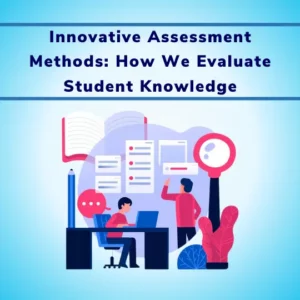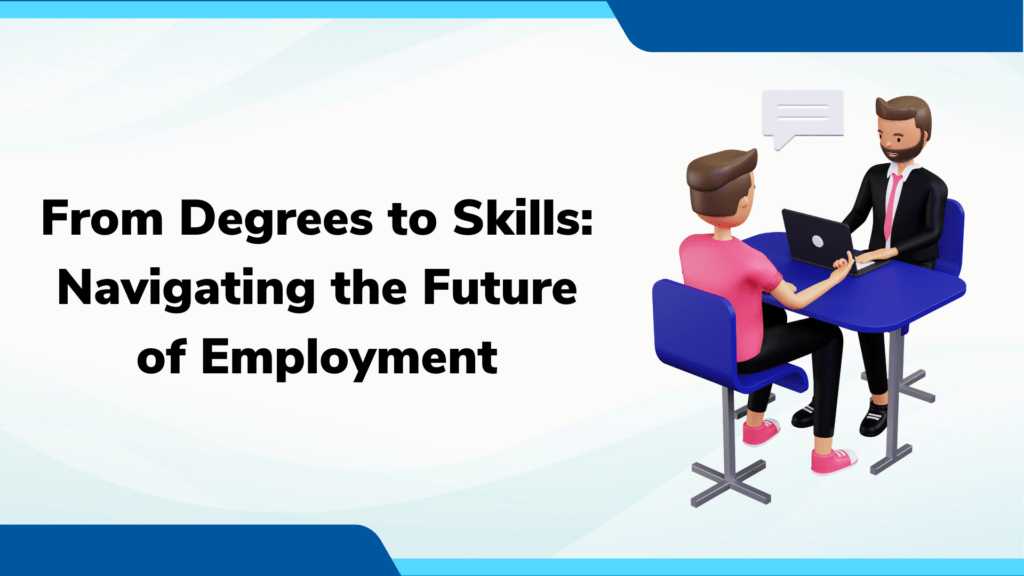
Article Contents
Introduction
The employment landscape is rapidly changing. In this digital era, the focus is shifting from traditional degrees to the acquisition of essential skills. As technology revolutionizes industries and job roles, it becomes imperative for individuals to navigate this new landscape wisely.
Technology and skills are becoming more critical than educational degrees. Companies have started prioritizing abilities over qualifications during the hiring process. Even without a degree, you can still succeed by learning and demonstrating practical skills through online courses or certifications.
Schools should adapt to this shift and enrich their syllabus with industry-relevant content.
90% of companies are facing a skills gap.
Source
Thus, students must also focus on gaining multiple skills by using online platforms like YouTube or certification programs that offer hands-on experience.
In the future, job opportunities will favor those who can show real skill proficiency rather than just holding a degree. So remember – it’s your skills that count most!

So let us have a look at the state of employment today, and what will it look like in the future.
👉Limitations of Formal Degree Education
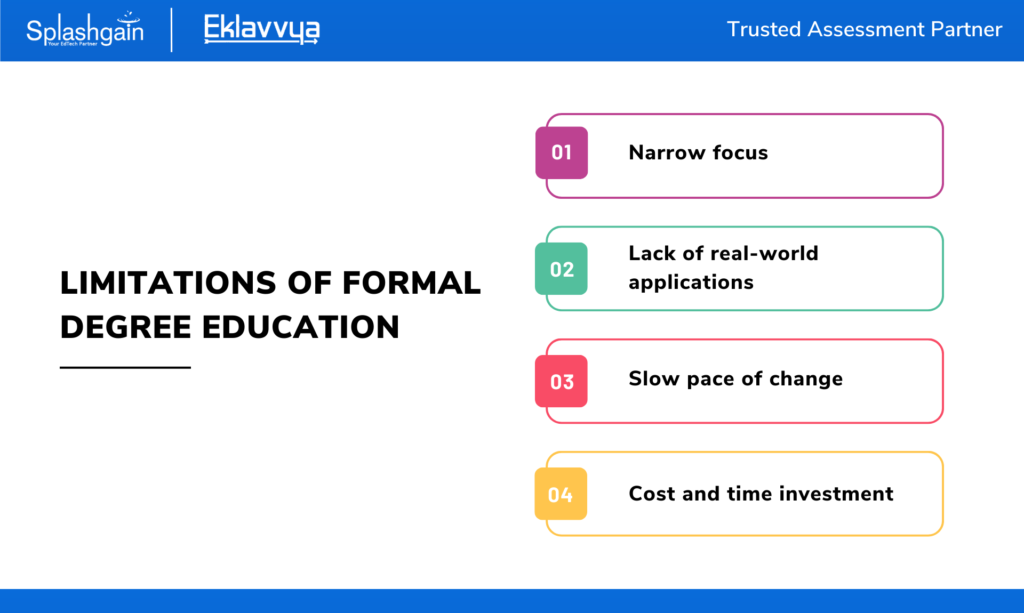
Let’s look at the current trend in our education system. Some universities update their syllabus regularly, while others do it every five to seven years. However, jobs and skills required by employers are constantly changing due to advancements like AI.
Here are a few limitations of having only a formal degree:
1. Narrow Focus
Formal degree education often follows a predefined curriculum that is designed to cover a broad range of subjects within a specific discipline. While this provides a foundational knowledge base, it can limit the depth and breadth of skills acquired. In a rapidly changing job market, where interdisciplinary skills are becoming increasingly valuable, relying solely on a formal degree may restrict opportunities for professional growth.
2. Lack of Real-World Application
Traditional degree programs often prioritize theoretical knowledge over practical application. Graduates may find themselves unprepared for the practical challenges of the workplace, as they may have limited exposure to real-world scenarios and hands-on experiences. Employers are increasingly seeking candidates who can immediately contribute to their organizations, and this emphasis on practical skills can put degree holders at a disadvantage.
3. Slow Pace of Change
The world is evolving at an unprecedented pace, driven by technological advancements and changing industry landscapes. However, formal degree programs often take years to update their curricula to reflect these rapid changes. This means that graduates may find themselves equipped with outdated skills that may not align with the current demands of the job market, making it necessary for individuals to supplement their degrees with continuous learning and skill development.
4. Cost and Time Investment
Pursuing a formal degree can be a significant financial and time commitment. Many individuals face the challenge of balancing work, family, and educational responsibilities. Additionally, rising tuition costs can pose financial burdens, leading to student loan debts. For those seeking more efficient and cost-effective ways to acquire specific skills, alternatives such as vocational training programs, online courses, or apprenticeships may be more suitable options.
Recognizing these limitations can empower individuals to explore additional avenues for skill development and consider a more holistic approach to their career growth.
Overcoming the Limitations of Formal Degree Education

Overcoming the limitations of formal degree education is extremely important for individuals to unlock their full potential, adapt to the changing job market, and showcase their practical skills and competencies to thrive in their desired careers.
1. Highlight Relevant Experience
Individuals without formal degrees can overcome the limitations by emphasizing their relevant experience.
The average job posting receives 250 resumes.
Source
So focusing on showcasing practical skills acquired through internships, apprenticeships, freelance work, or relevant projects is necessary. Highlight achievements, responsibilities, and outcomes that demonstrate your abilities and value to potential employers.
2. Gain Industry Certifications
Obtaining industry-recognized certifications can help individuals without formal degrees establish credibility and showcase their expertise. Research certifications relevant to your desired field or role and invest time in earning those credentials. These certifications validate your skills and knowledge, making you a more competitive candidate in the job market.
3. Network to Establish Credibility
Networking is essential for individuals without formal degrees to build connections and establish credibility. Attend industry events, join professional associations, and engage in online communities to connect with industry professionals. Actively participate in discussions, share insights, and seek mentorship opportunities. Networking allows you to showcase your skills, gain valuable advice, and potentially open doors to job opportunities.
4. Showcase Transferable Skills
Emphasize transferable skills that can be applied across different roles and industries. Employers highly value skills like communication, problem-solving, leadership, adaptability, and teamwork. Highlight how these skills have been effectively utilized in previous experiences or projects to demonstrate your ability to contribute to a variety of work environments.
By focusing on relevant experience, gaining industry certifications, networking, and showcasing transferable skills, individuals without formal degrees can overcome the challenges they may face in the job market. These strategies help demonstrate their qualifications, credibility, and ability to thrive in the desired roles.
The Shift in Hiring Trends
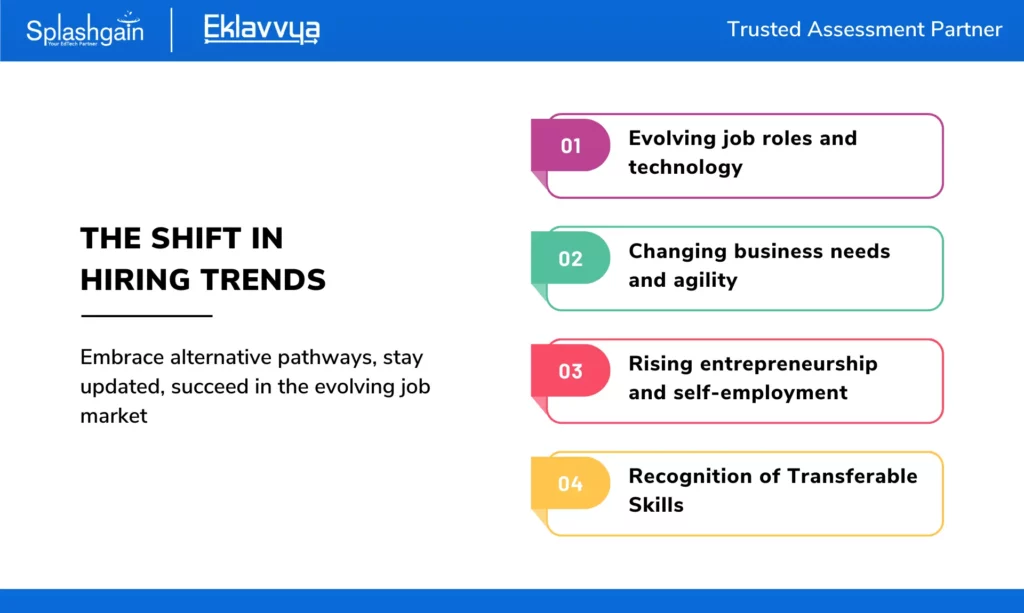
👉Evolving Job Roles and Technology
The rapid advancement of technology has transformed job roles, creating a demand for specialized skills that traditional degree programs may not adequately address.
In a survey of hiring managers, 75% said that skills are more important than degrees when evaluating candidates.
Source
Employers now seek candidates who possess practical skills and hands-on experience relevant to the evolving needs of their industry. This shift has resulted in a greater emphasis on skills that directly contribute to the tasks and responsibilities of a particular role.
👉Changing Business Needs and Agility
In today’s competitive business landscape, organizations require agility and the ability to quickly adapt to changing market conditions. This has led to a shift in hiring practices, where companies prioritize candidates who can immediately contribute to their operations. Employers recognize that skills can be developed and honed through practical experience, making applicants with relevant skills more valuable assets to their teams.
👉Rising Entrepreneurship and self-employment
The rise of entrepreneurship and the gig economy has challenged the traditional employment model. Many individuals are opting for self-employment or freelancing, where skills and expertise are highly valued over formal degrees. This trend has permeated the job market, with employers increasingly recognizing the benefits of hiring individuals with specialized skills for specific projects or tasks, rather than relying solely on degree qualifications.
👉Recognition of Transferable Skills
Employers have come to appreciate the value of transferable skills, which can be applied across various roles and industries. Skills such as communication, problem-solving, critical thinking, and adaptability are considered essential in the modern workplace. Job seekers who can demonstrate a strong skill set, backed by practical experience, have a competitive edge over those who rely solely on their academic qualifications.
Overall, this shift in the job market has opened up opportunities for job seekers to showcase their skills and practical experience. It encourages individuals to pursue alternative pathways for skill development, such as vocational training, online courses, or internships, while also highlighting the importance of continuous learning and staying updated with industry trends. Job seekers who embrace this transition and actively acquire and showcase relevant skills are more likely to thrive in the evolving job market.
The Rise of Skills-Based Hiring
Companies have started placing greater importance on skills-based hiring practices as they recognize that practical skills and competencies directly contribute to job-relevant performance. By assessing candidates based on their specific skills and abilities, companies can identify individuals who are better equipped to handle the demands of the job and deliver results. This approach ensures a more efficient and effective workforce, leading to improved organizational performance.
In a rapidly evolving business landscape, companies are seeking employees who can adapt to change and embrace new technologies and methodologies. Practical skills and competencies are seen as crucial indicators of an individual’s ability to quickly learn and apply new concepts.
Employers rank soft skills as the most important factor when hiring.
Source
By prioritizing skills-based hiring, companies can build a workforce that is agile, adaptable, and future-proof, capable of navigating shifting industry trends and staying ahead of the competition.
Companies are recognizing the financial benefits of skills-based hiring. By selecting candidates with relevant skills and competencies, organizations can significantly reduce training time and costs. When employees possess the necessary skills, they require minimal additional training to be productive, which translates into cost savings and a quicker return on investment for the company. This approach allows companies to optimize their resources and allocate them more efficiently.
Education systems adapt to the changing hiring trends
To align with the changing job market, educational institutions must adapt their curriculum and teaching methods. They can incorporate industry-relevant content and collaborate with employers to design responsive curricula.
Hands-on experiences, such as internships and project-based learning, equip students with practical skills and enhance problem-solving abilities. Skill-specific courses and workshops prioritize the development of critical skills like communication and digital literacy. Access to online learning platforms, industry certifications, and mentorship programs further enhance skill development opportunities.
Encouraging a culture of lifelong learning prepares students to adapt to new technologies and industry trends. By bridging the gap between academia and industry, educational institutions empower students for successful transitions from education to employment.
The Role of Online Learning Platforms
Online learning platforms, such as MOOCs and certification programs, bridge the gap between degrees and skills by offering flexible and accessible opportunities to acquire practical skills valued in the job market.
Learners can choose from a wide range of courses, focusing on specific skills they want to develop and tailoring their education to their career goals. Online courses often include practical assignments and simulations, providing hands-on experience and real-world application.
The global reach of online learning platforms allows learners to access courses from renowned institutions worldwide, exposing them to diverse perspectives and experiences, fostering a more inclusive and diverse skill set.
Online learning offers the flexibility of self-paced learning, enabling individuals to balance education with other commitments. Industry-recognized certifications obtained through online courses validate learners’ acquired skills and enhance their credentials, appealing to employers seeking specific skill sets.
The cost of a traditional college education has increased by 25% in the last 10 years.
Source
Online assessment platforms such as Eklavvya provide a cost-effective solution for organizations. They eliminate the need for extensive travel or accommodation expenses associated with traditional education, making learning more affordable and accessible.
This affordability enables individuals to upskill or reskill without significant financial burdens, while also benefiting employers by offering a more cost-effective way to address skill gaps and meet specific organizational needs.
Overall, online learning provides a cost-effective alternative for gaining practical skills and staying relevant in a rapidly changing job market.
Importance of showcasing skills
It is crucial for job seekers to effectively showcase their skills to potential employers. Let us discuss the importance of building a portfolio, leveraging online platforms, and networking within relevant communities to demonstrate skill proficiency.
1) Build a Strong Portfolio
Creating a portfolio that showcases your practical skills and accomplishments is essential. Include relevant projects, case studies, or examples of work that demonstrate your proficiency in specific skills. Use a variety of formats such as a personal website, online portfolio, or a curated collection of work samples to effectively highlight your abilities.
2) Leverage Online Platforms
Take advantage of online platforms and professional networks to showcase your skills.
The average time spent on a resume by a recruiter is 7.4 seconds.
Source
So utilize the online platforms to create your resume to display your work, share insights, and engage with like-minded professionals. Actively participate in relevant online communities, forums, or industry-specific platforms to demonstrate your expertise and make valuable connections.
3) Seek Opportunities for Skill Demonstration
Look for opportunities to demonstrate your skills in real-world settings. Consider participating in hackathons, volunteering for relevant projects, or freelancing to gain practical experience and showcase your abilities. Additionally, contribute to open-source projects or create your own projects to exhibit your problem-solving skills and innovation.
4) Network within Relevant Communities
Networking is crucial for showcasing your skills to potential employers. Attend industry events, conferences, and meetups to connect with professionals in your field. Actively engage in conversations, share insights, and seek mentorship opportunities. Building relationships within relevant communities can lead to referrals, recommendations, and potential job opportunities.
Remember, effectively showcasing your skills requires a proactive approach. Continuously update your portfolio and online profiles, engage with industry professionals, and seek feedback to refine your skills and presentation. By adopting these strategies, you can demonstrate your skill proficiency and stand out in the competitive job market.
The Future of Employment
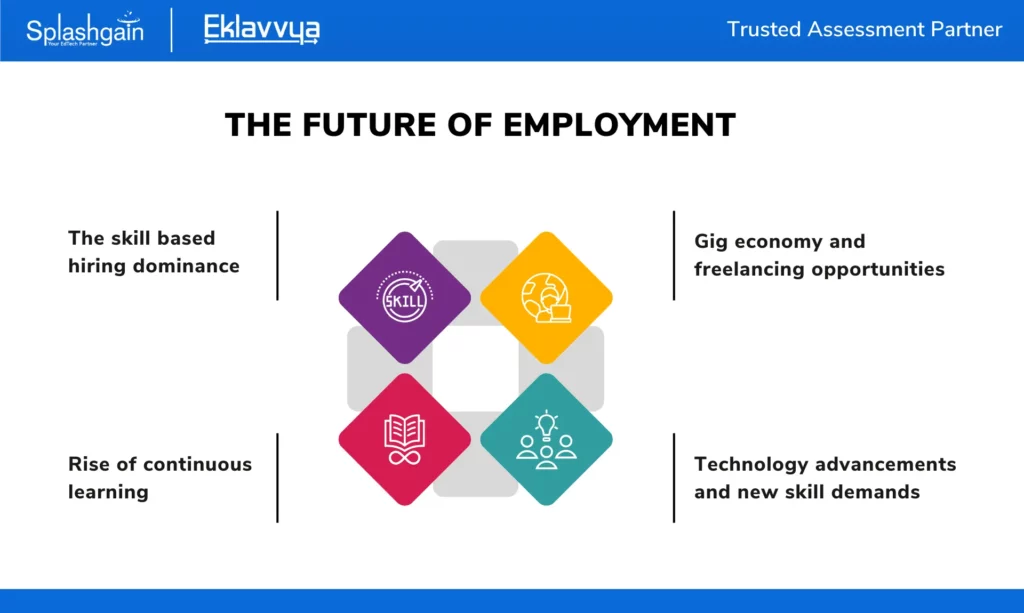
In the future of employment, the growing importance of skills over degrees will reshape the job market, presenting exciting opportunities for skill-focused individuals.
1. Skill-Based Hiring Dominance
94% of hiring managers consider employee skills more important than where they went to school.
Source
Skill-based hiring will become the norm, with employers prioritizing candidates who possess the practical abilities necessary to contribute immediately. Degrees will still hold value, but employers will increasingly seek candidates with a demonstrated track record of skill development and application.
2. Rise of Continuous Learning
The future will demand a culture of continuous learning, as skills evolve and industries undergo rapid transformations. Individuals who proactively invest in skill development, through online courses, workshops, or vocational training, will remain agile, adaptable, and attractive to employers seeking candidates with up-to-date expertise.
3. Gig Economy and Freelancing Opportunities
The trend towards the gig economy will continue to grow, with an increasing number of individuals opting for flexible work arrangements. Freelancers who can showcase specialized skills and build a reputation for delivering quality work will thrive in this landscape, enjoying a diverse range of projects and clients.
4. Technological Advancements and New Skill Demands
As technology continues to advance, new skill demands will emerge. Jobs centered around artificial intelligence, data analysis, cybersecurity, and digital marketing will expand. Individuals who embrace these emerging fields and actively develop the associated skills will have a competitive edge in the job market.
Overall, the future of employment will be defined by a skills-first approach, providing opportunities for individuals who invest in skill development, adapt to evolving trends, and showcase their practical abilities. Continuous learning and staying ahead of technological advancements will be crucial for success, enabling individuals to navigate an ever-changing job market and pursue fulfilling careers.
Case Studies and Success Stories
1. Mark Zuckerberg (Co-founder and CEO of Facebook)
Mark Zuckerberg is a prominent example of success without a traditional degree. He dropped out of Harvard University to pursue his vision of creating a social networking platform, which led to the establishment of Facebook. Zuckerberg’s focus on practical experience and his exceptional coding skills propelled him to become one of the youngest billionaires in the world. His journey teaches us the importance of passion, relentless pursuit of one’s goals, and leveraging practical skills to create impactful innovations.
2. Steve Jobs (Co-founder of Apple Inc.)
Steve Jobs, the visionary behind Apple Inc., is a notable example of achieving extraordinary success without a formal degree. After dropping out of Reed College, Jobs co-founded Apple in his parent’s garage and revolutionized the technology industry with groundbreaking products like the iPhone and MacBook. Jobs’ emphasis on creativity, design, and user experience showcased the power of practical skills and the ability to think outside the box. His journey teaches us the value of pursuing passions, focusing on innovation, and continually pushing boundaries.
These examples illustrate that success is not solely dependent on formal degrees but can be achieved through a combination of practical skills, innovation, passion, and continuous learning. They inspire individuals to think differently, embrace their unique paths, and leverage their strengths to make a lasting impact in their respective industries.
Wrapping up
The future of employment is rapidly shifting towards a skills-focused paradigm, where practical abilities hold huge importance over traditional degrees.
The future of employment is rapidly shifting towards a skills-focused paradigm, where practical abilities hold huge importance over traditional degrees.
Source
Embracing this trend opens up a world of opportunities for individuals who prioritize skill development, continuous learning, and adaptability.

The rise of skill-based hiring, the gig economy, and the need for specialized skills in emerging fields present exciting prospects for those who proactively invest in their skill sets. By staying ahead of technological advancements, individuals can navigate the evolving job market and proceed on the path leading to a successful and fulfilling career.
A degree is an academic qualification awarded by an educational institution, typically obtained after completing a prescribed course of study. On the other hand, a skill is a specific ability or expertise acquired through practice, training, or experience that enables an individual to perform a particular task or function effectively. Skills are more focused and directly applicable to practical situations in the workplace.
Acquiring skills over degrees offers several benefits. Skills are often more relevant and adaptable to the rapidly changing job market. It allows individuals to meet specific industry needs and remain competitive. Additionally, focusing on skills can provide a more cost-effective and efficient path to career development, as individuals can acquire targeted abilities through practical experiences, certifications, and specialized training programs without the time and financial investment required for traditional degree programs.
Individuals transitioning from a degree-based to a skills-based job market may face several challenges. Some potential challenges include the need to demonstrate practical experience and skill proficiency without a formal degree, competition from candidates with both degrees and skills, and the requirement to continuously update and adapt their skill set to stay relevant in a rapidly evolving job market.
To showcase your skills to potential employers, create a strong portfolio highlighting relevant projects and accomplishments. Utilize online platforms and professional networks to share your work, engage with industry professionals, and gain credibility. You can also leverage networking opportunities, industry events, and online communities to establish connections and demonstrate your expertise through discussions and active participation.
Technology will play a pivotal role in the future of employment, driving significant changes in job roles and the overall work landscape. It will create new job opportunities in emerging fields such as artificial intelligence, data science, and robotics, while also reshaping existing industries. The integration of technology will require individuals to develop digital literacy skills and adapt to the evolving technological advancements to remain competitive in the job market.


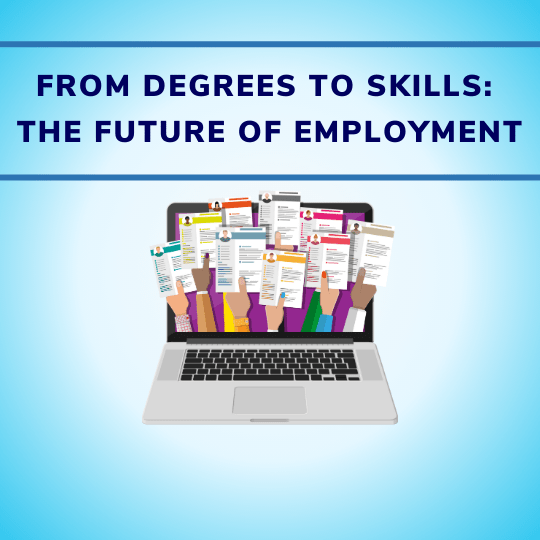
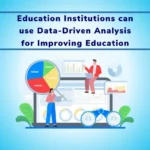
![How Government-Led Exams at 250+ Locations Are Setting New Standards of Integrity [Case Study]](https://www.eklavvya.com/blog/wp-content/uploads/2024/04/Enhancing-Exam-Integrity-Government-Certification-in-250-Locations-150x150.webp)
![Transforming Central Govt. Exams Evaluation: How Onscreen Marking is Leading the Charge [Case Study]](https://www.eklavvya.com/blog/wp-content/uploads/2024/04/How-Onscreen-Marking-Revolutionized-Central-Govt-Exams-Case-Study-1-150x150.webp)
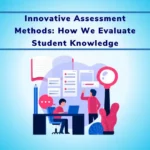












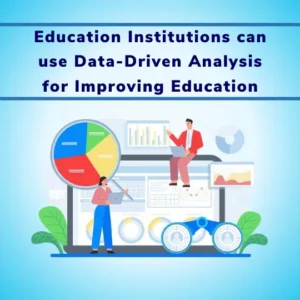

![How Onscreen Marking Revolutionized Central Govt Exams [Case Study]](https://www.eklavvya.com/blog/wp-content/uploads/2024/04/How-Onscreen-Marking-Revolutionized-Central-Govt-Exams-Case-Study-1-300x300.webp)
